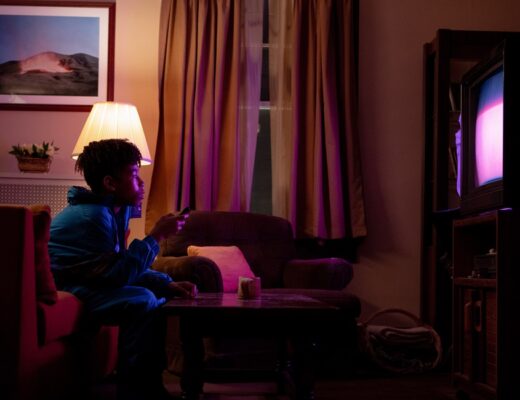Post-Dardenne social realism all too often functions as safe-enough filler material for international film fest lineups, but director Kim Se-in rather confidently finds her own way through this mode with debut feature The Apartment with Two Women, which had its North American premiere with Film at Lincoln Center’s New Directors/New Films program following some success at Busan and Berlinale last year. Generally a stodgy, occasionally even exploitative pseudo-genre, Kim’s script (she’s the sole screenwriter) and her stars (Lym Ji-ho and Yang Mal-bok, also relatively new talents) bring a bracing immediacy to some particularly painful material that cuts past the perfunctory tendencies of contemporary cinematic social realism.
Demonstrating a really appealing sense of narrative pace that unfortunately ends up undermined somewhat by the film’s ambitious 140-minute runtime, Kim introduces her subjects in quick, unceremonious fashion (in the midst of washing underwear), hinting at a violent, driving conflict that she proceeds to unveil almost immediately, before then pulling back and carefully observing the fraught fallout. Lym and Yang play Sukyung and Yijung, an abusive mother and her withdrawn 20-something daughter who, up until the start of the film, have lived together in a small apartment in a perpetual state of discord. Never having known much else, the sullen Yijung quietly accepts her mother’s verbal and physical assaults, until the day that Sukyung hits her with their car after an especially extreme outburst, and the resulting insurance lawsuit opens up a path for the young victim to break away from her abuser mother.
Initially suggesting itself to be a straightforward empowerment narrative, Kim doesn’t ever allow The Apartment with Two Women to remain uncomplicated for too long a stretch of time, and while her script is generous in giving Yijung some notable early triumphs, it’s also cognizant of the repercussions that follow in the wake of sustained domestic abuse. With this in mind, much of The Apartment with Two Women finds the mother/daughter pair moving in and out of each other’s orbits in their first stumbling attempts to build something new and divorced from this traumatizing dynamic. Yijung takes on a sad sales job and attempts to instigate a friendship with a coworker, while Sukyung takes up with a single dad and attempts to integrate into his family — neither ever quite able to permanently escape their shared apartment. Kim makes a couple disappointing choices suggestive of the recency of her venture into feature filmmaking (the length as previously mentioned, but also the very serviceable, unstylish handheld cinematography), but nothing so significant as to negate the vivid honesty of her writing and the specificity of her vision, which ultimately transcend the superficially drab form that houses them.
Published as part of New Directors/New Films 2022: Dispatch 4.







